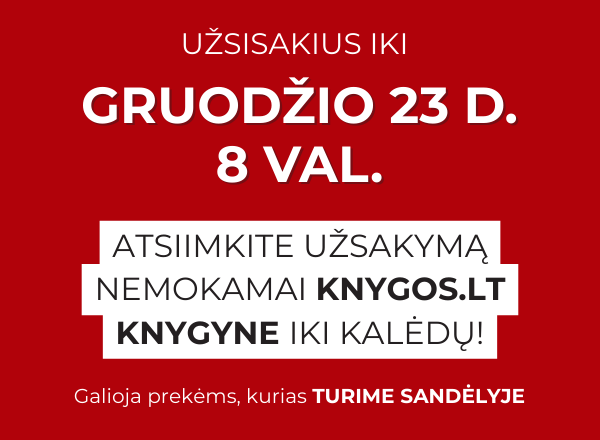- Išsiųsime per 12–18 d.d.
- Autorius: Quinn Slobodian
- Leidėjas: Penguin Books Ltd (UK)
- Metai: 2025
- Puslapiai: 288
- ISBN-10: 0241774985
- ISBN-13: 9780241774984
- Formatas: 16.3 x 24 x 3 cm, kieti viršeliai
- Kalba: Anglų
- Extra -15 % nuolaida šiai knygai su kodu: ENG15
Atsiliepimai
Aprašymas
How neoliberals turned to nature to defend inequality after the end of the Cold WarNeoliberals should have seen the end of the Cold War as a total victory—but they didn’t. Instead, they saw the chameleon of communism changing colors from red to green. The poison of civil rights, feminism, and environmentalism ran through the veins of the body politic and they needed an antidote.
To defy demands for equality, many neoliberals turned to nature. Race, intelligence, territory, and precious metal would be bulwarks against progressive politics. Reading and misreading the writings of their sages, Friedrich Hayek and Ludwig von Mises, they articulated a philosophy of three hards—hardwired human nature, hard borders, and hard money—and forged the alliances with racial psychologists, neoconfederates, ethnonationalists, and goldbugs that would become known as the alt-right.
Following Hayek’s bastards from Murray Rothbard to Charles Murray to Javier Milei, we find that key strains of the Far Right emerged within the neoliberal intellectual movement not against it. What has been reported as an ideological backlash against neoliberal globalization in recent years is often more of a frontlash. This history of ideas shows us that the reported clash of opposites is more like a family feud.
EXTRA 15 % nuolaida su kodu: ENG15
Akcija baigiasi už 6d.07:10:23
Nuolaidos kodas galioja perkant nuo 5 €. Nuolaidos nesumuojamos.

- Autorius: Quinn Slobodian
- Leidėjas: Penguin Books Ltd (UK)
- Metai: 2025
- Puslapiai: 288
- ISBN-10: 0241774985
- ISBN-13: 9780241774984
- Formatas: 16.3 x 24 x 3 cm, kieti viršeliai
- Kalba: Anglų
Neoliberals should have seen the end of the Cold War as a total victory—but they didn’t. Instead, they saw the chameleon of communism changing colors from red to green. The poison of civil rights, feminism, and environmentalism ran through the veins of the body politic and they needed an antidote.
To defy demands for equality, many neoliberals turned to nature. Race, intelligence, territory, and precious metal would be bulwarks against progressive politics. Reading and misreading the writings of their sages, Friedrich Hayek and Ludwig von Mises, they articulated a philosophy of three hards—hardwired human nature, hard borders, and hard money—and forged the alliances with racial psychologists, neoconfederates, ethnonationalists, and goldbugs that would become known as the alt-right.
Following Hayek’s bastards from Murray Rothbard to Charles Murray to Javier Milei, we find that key strains of the Far Right emerged within the neoliberal intellectual movement not against it. What has been reported as an ideological backlash against neoliberal globalization in recent years is often more of a frontlash. This history of ideas shows us that the reported clash of opposites is more like a family feud.




Atsiliepimai